Introduction
Hiking &/ Trekking is a fun and soothing outdoor activity. Where do people go for a long walk? Hiking trails, pathways, modest inclines, natural settings, and, of course, the mountains. Hiking is primarily for the purpose of enjoying nature, and there is no set distance to hike.
Sometimes people use the phrases “hiking” and “trekking” interchangeably. Hiking is a long walk that you can do with or without company. Trekking, on the other hand, is difficult to undertake on a mountainside walk. Hiking has greatly increased in recent years.
It has numerous health benefits and requires minimal physical effort. Hiking clubs and organisations are the primary organisers of hikes in the countryside and mountains.
Best places or destinations for Hiking
Nearby parks, which usually have a lot of trees and create a natural view, are the best place for ordinary people to go trekking, and interested people can visit nearby national parks.
National parks are often built on acres of land with a variety of recreational activities and walking paths, allowing hikers to spend the full day outside.
The types of Hiking
Hiking is more than just a walk; it includes a variety of activities that appeal to a wide range of people.
There are day hikes, night hikes, weekend hikes, solo hikes, group hikes, rain hikes, and so on.
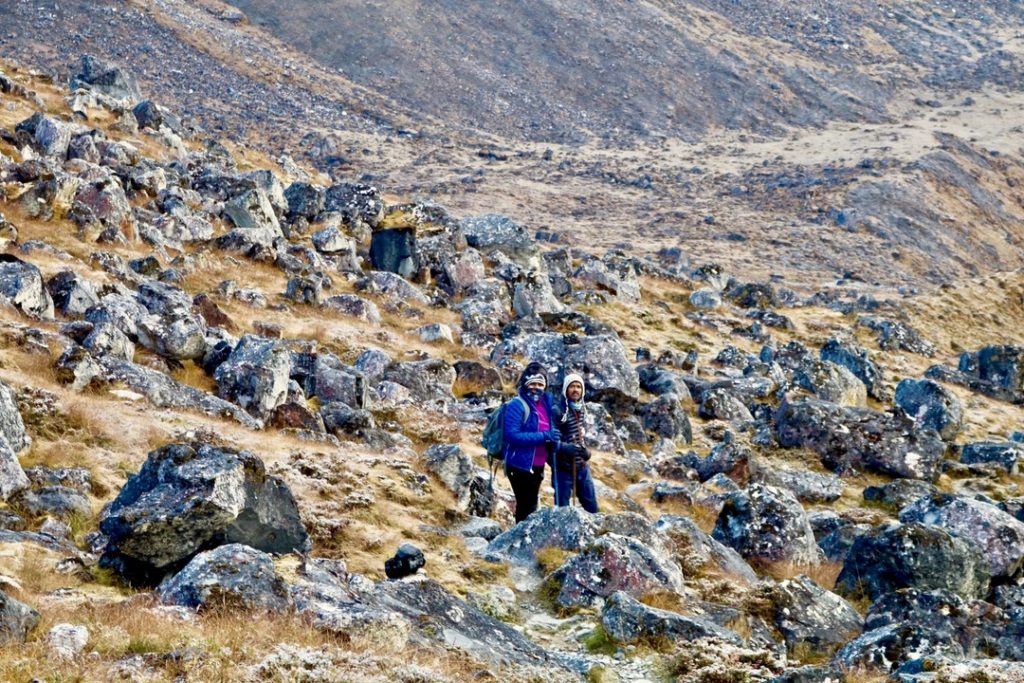
Hiking and its health benefits
Hiking is a great way to go outside, get some exercise, and see new places. It also turns out to be quite good for your health. Because of its many physical and mental health benefits, hiking is one of the best workouts for both your body and mind.
In comparison to other sports, it is also quite easy to participate in. Hikers of all ages and abilities will be able to find a hike that fits their needs. Hiking has grown in popularity as a stress-relieving activity for people all around the world.
You’ve probably already experienced some of the benefits of hiking, whether you’re a seasoned hiker or just getting started. Many individuals practiced hiking to cope with the uncertainty and instability brought on by global famine, natural disasters, and conflict.
Hiking benefits on physical health
Hiking, as demonstrated in the list below, is a terrific method to get in shape naturally.
- It helps to reduce heart disease.
- Staying active can help you manage your stress.
- Helps to improve sugar levels and blood pressure.
- Increase the strength and density of your bones.
- It contributes to weight loss.
- It helps in a pleasant night’s sleep.
- Helps to keep depression at bay.
- Hiking can aid in the prevention of disease and the recovery of muscle discomfort.
Better your heart’s health
Hiking paths might feature high inclines, which are beneficial to your heart. You can obtain the heart related health benefits of hiking even if you’re not on a trail with a lot of elevation increase. Hiking is an aerobic activity that involves activities that raise your heart and respiratory rates as you work to keep your body hydrated.
Hiking and other aerobic exercises boost blood flow to the small veins that go through your heart and can become blocked over time. This improved blood flow can reduce your risk of heart disease and improve your cholesterol and blood pressure.
While hiking will not raise your heart rate as quickly as jogging, cycling, or other high-intensity sports, it will certainly get your blood pumping. According to experts, its similar to 30 minutes of cardio a day which could provide you with these advantages. It also provides us a reason to continue going for weekend walks.
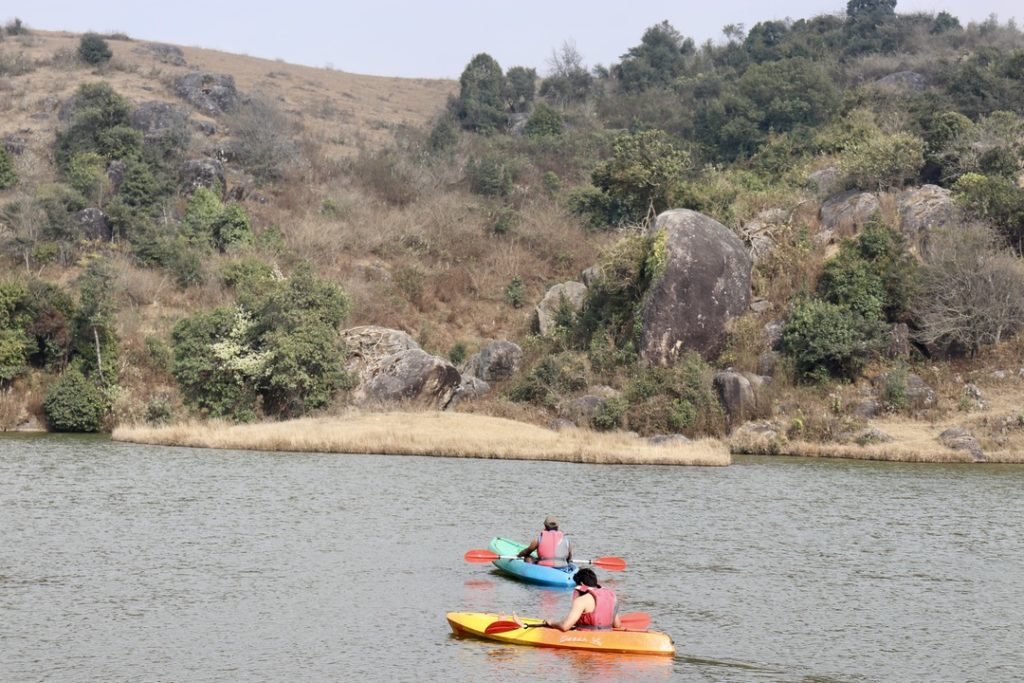
Strengthen bones and muscles
Hiking is a fantastic way to keep your muscles and bones in good shape. You’ll employ different muscle groups throughout the day because each hiking trail demands you to adapt to different terrain and slope angles.
Each journey confronts your body with a new challenge, whether it’s a moderate ascent, a hard ascent, sloping hills, or anything in between. Downhill zones strengthen your knees and hip flexors, while incline zones work your quads, hook, glutes, and calves.
The increased weight of a backpack helps to strengthen your shoulders, arms, and back. It also strengthens your core, which is a set of muscles that help to keep your torso in place. It’s a complete body workout. Hikes are a great way to develop your bones and muscles at the same time.
Weight-bearing workouts that force you to fight gravity, according to the National Institute of Health, are good for bone health. Although bone, like muscle, is a living structure that improves with activity, hiking, walking, and cycling can help boost bone density, strength, and overall bone mass.
Better balancing
Hiking is a great approach to improve your balance if you’ve ever desired to. It develops general strength and stability by requiring the use of various muscle groups. Hiking, in particular, stimulates and strengthens your hips and core muscles, which help you stay balanced on rough terrain.
However, not every hiking trail will put your balance to the test. Try exploring trails with higher grades or more uneven terrain characteristics like roots and stones as your hiking skills improve. Improving your balance can make your life more enjoyable and meaningful.
It becomes increasingly important as you get older since strong balance helps to lower the risk of harm from falls. Walking around the neighbourhood or using the treadmill are both excellent ways to workout. Go on a Sikkim GoechaLa trek if you want to enhance your balance.
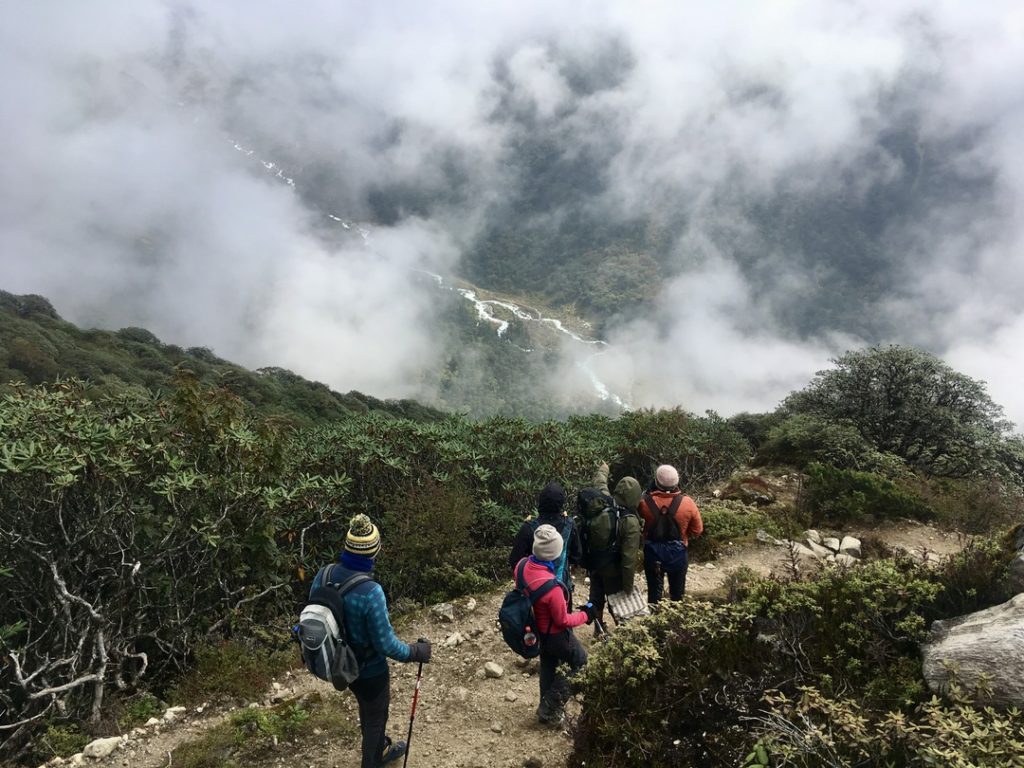
Get a better night’s sleep
Do you have a strong desire to get a good night’s sleep? It’s conceivable you’ll need to take some time off. Hiking and trekking, like other forms of exercise, has been shown to improve sleep quality as per studies. It’s a full-body workout that necessitates physical stamina, but it might also be a wonderful mental challenge.
Mental workouts that require a lot of mental fortitude include studying maps, navigating pathways, and pushing through a difficult climb. All of our mental and physical exertion causes our minds and bodies to relax. As a result, unwind with a restful night’s sleep at the end of the day.
There is a lot of evidence to support the link between hiking and improved sleep. Exercise aids the production of important sleep chemicals such as melatonin. The bright light of the early sun also aids our circadian cycles. So now we have yet another motivation to get out of bed in the morning and go for a hike.
Enhance your stamina
Hiking and trekking is a fantastic technique to build endurance, and can range from two-mile loops to 50-mile circuits. It is a low-intensity activity when compared to other aerobic workouts such as running, cycling, and so on.
The majority of hikes will keep your heart rate in zone 2. This is where you can keep moving while talking to a friend. The workout isn’t easy, but it’s not difficult either. It also takes very little time. When you keep your heart rate in the zone 2 range for an extended period of time, your body quickly establishes an aerobic base and increases your stamina.
Beginners should start with shorter, simpler hikes to build up their muscle and stamina. Backpacking loops can be an effective strategy to accumulate kilometres over several days for more rustic hikers seeking a challenge.
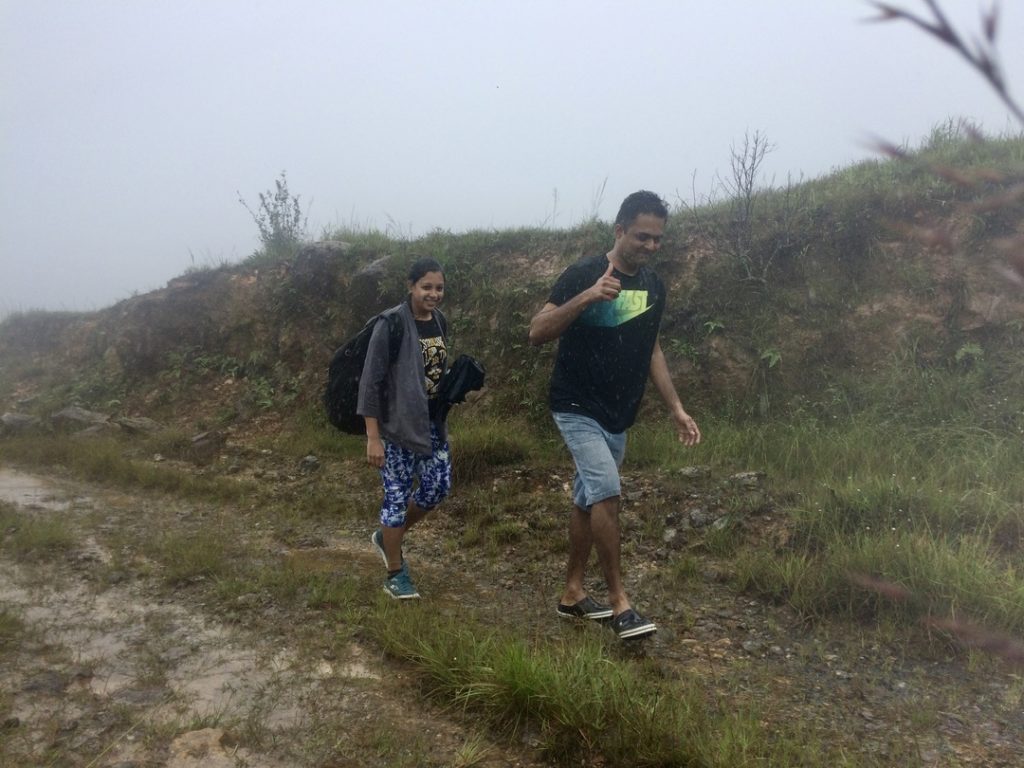
Benefits of hiking for mental health
Breakdown of stress and anxiety
Hiking can be incredibly good to your mental health, in addition to its numerous physical benefits. It lets you reconnect with nature and your body, making it a useful tool for dealing with the stresses of modern life.
Hiking, like many other forms of exercise, causes the body to release endorphins, or “feel-good hormones.” Because they make you feel good and allow you to unwind. We are all aware, however, of the harmful consequences of stress on the body.
Not only can stress make you feel stuck, but it can also build up in your body, leading to increased anxiety and despair. Fortunately, exercise is a wonderful stress reliever. Rumination, or the overplaying of thoughts and fears, can be reduced by going for a walk in the woods.
Spending time outdoors, according to the research, reduces activity in the brain region linked to the onset of mental illness. Hiking improves sun exposure, which provides a variety of health benefits, including vitamin D generation. As a result, it is essential for immune function, bone health, and mood management.
Improve your nature connection
You’ll have plenty of opportunities to interact with nature while hiking and trekking. You have the ability to become entirely immersed in your surroundings. Because you’re not blasting across the countryside like you would when running or bicycling.
You engage all of your senses when you walk outside and take in the sights, sounds, fragrances, feelings, and sometimes even tastes of the world around you. As you unplug from the rush and bustle of everyday life to (literally) pause and smell the flowers, you’ll reap a slew of advantages from this full-body experience.
There are also so many varied trekking scenery options that you will never get bored. In nature, there’s always something new to view. It can also help people who are suffering from climate anxiety, which manifests as fury, dread, and insecurity. However note that some individuals can be suffering as a result of our current climate catastrophe.
Hiking in the woods allows you to slow down and become more in sync with nature’s rhythms, which can help you relax. Spending more time in nature may increase people’s motivation to join in conservation efforts. It benefits both humans and the environment in this way, making it a win-win situation.
Boost your self-confidence
Hiking and trekking can be a great way to reconnect with yourself while also strengthening your bonds with others. We’ve all had those moments when we doubted our own talents. It can help you change your mindset and increase your self-esteem. As a result, you’ll be able to prove to yourself that you’re capable of performing difficult tasks.
Taking on new responsibilities is one of the most effective methods to enhance self-confidence and emotions of self-worth. Trekking is an excellent approach to bolster your newfound self-assurance. As a result, each path will present you with a different set of challenges to complete.
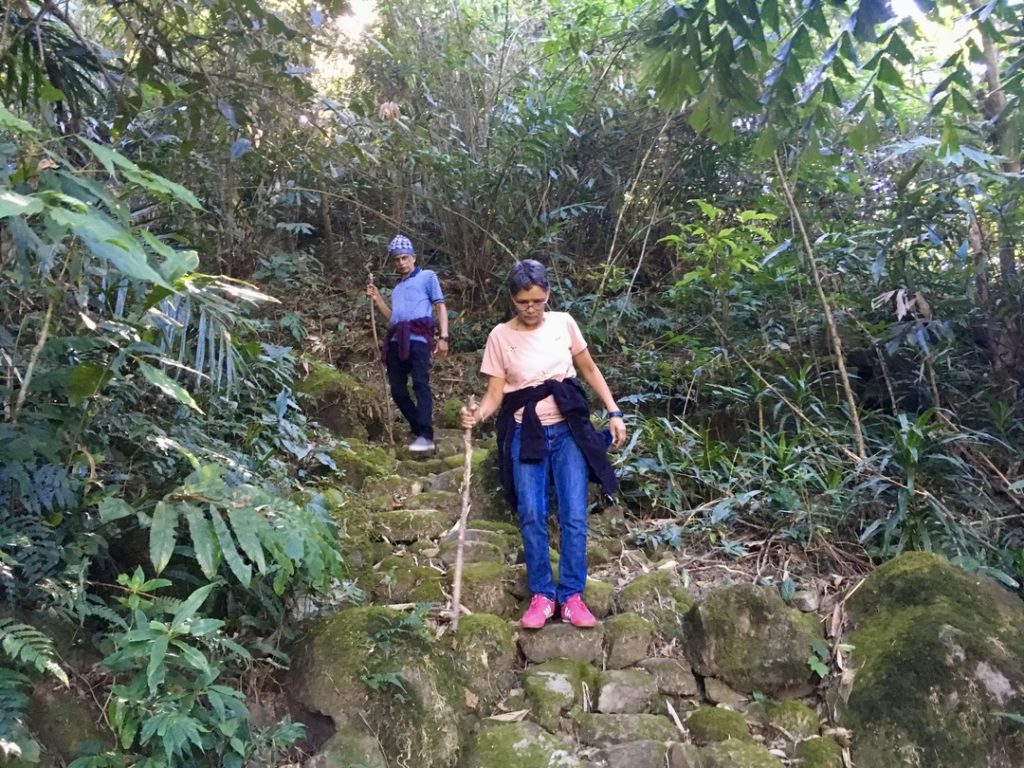
Enhance your mental abilities
Any form of exercise is beneficial to our mental health, but it also pushes us to our physical and mental limits. When you’re out on the trek trail, you need to be aware of your surroundings at all times. Any potential threats, route markings, or wild animals that may come into contact with you, must be taken into account.
Spatial memory and navigation are thought to be aided by the hippocampus and retrosplenial cortex. They are engaged as a result of this mental awareness. It maintains mental sharpness by stimulating various sections of the brain and building new connections.
Regular cardiovascular exercise, such as hiking and trekking, has been linked to a variety of cognitive benefits. There are, however, several advantages, like increased memory, cognition, creativity, and a lower risk of Alzheimer’s disease, to mention a few.
Things to keep in mind before starting the hiking
Before starting the hike/trek, one should be physically and mentally prepared to prevent danger. Make a plan for where you want to begin and end your hike/trek.
When trekking, it’s generally a good idea to start small and gradually increase your distance. To make your journey more fun, keep vital stuff like a bag, drink, shoes, and hiking partners in mind. You can catch the incredible moments if you have a camera with you.
Another advantage of hiking could be the revitalising and stress-relieving qualities of being in nature. Several studies have indicated that spending time in green surroundings such as natural parks, forests, and city parks can help people relax.
According to a growing body of research and data, stress is connected to high blood pressure and an elevated risk of heart disease. Anything you can do to relieve stress will almost certainly be useful.

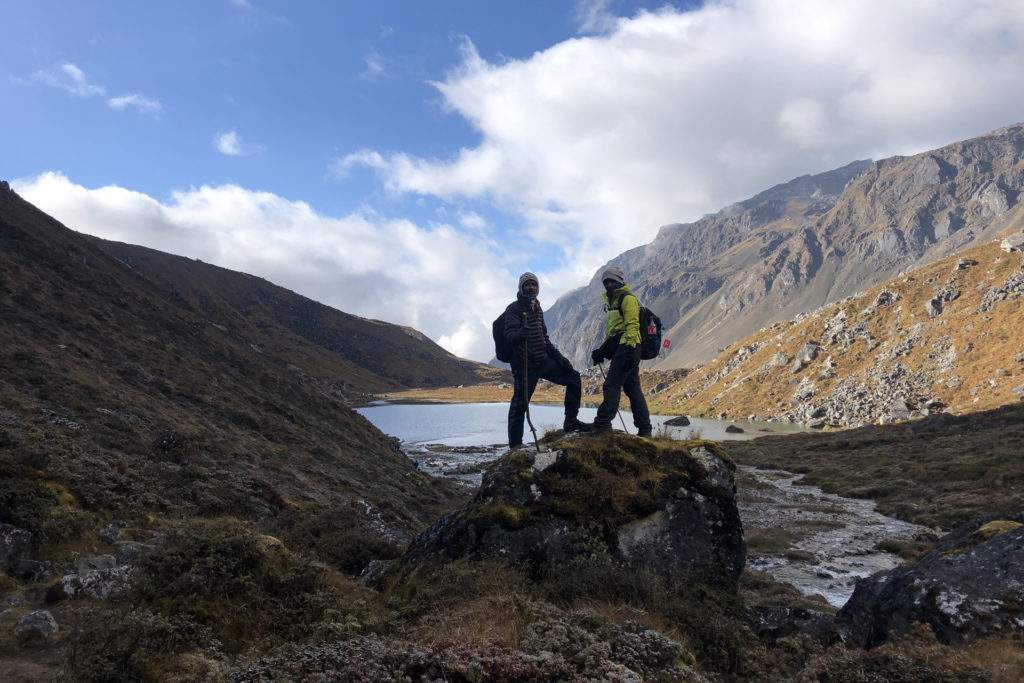
Thank you!